Bochum-Grenoble Memory Colloquium
2020-2021

First semester
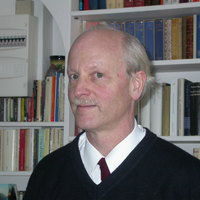
Jeffrey Andrew Barash
(Université de Picardie)
Collective memory and the transformations of political myth in the era of the mass media
10:00-11:30 CEST (UTC+02:00), 08 October 2020
Abstract: Whatever structural similarities anthropologists might posit to typify and systematize the myths that have been narrated since time immemorial, I will insist in this talk on the appearance over the past decades of a novel kind of political myth adapted to a specifically modern significance and function. How might we account for this novel function of political myth in the contemporary world? According to my interpretation, the contemporary singularity of its meaning and function depends on mutations on a global scale in the modes of collective experience; in the ways in which experience communicated among vast groups is collectively remembered and imaginatively deployed. This talk will investigate these mutations in collective modes of experience and remembrance, which may be traced to the remarkable influence of the mass media that, over the past century and a half, have relentlessly accelerated their communicative capacity and extended their global reach.
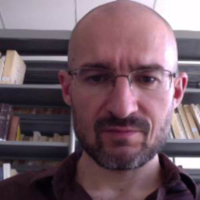
Denis Perrin
(Université Grenoble Alpes)
Immunity to error through misidentification in observer memories: A moderate separatist account
14:00-15:30 CEST (UTC+02:00), 09 October 2020
(Talk also part of the FOR 2812 seminar. See here for Zoom coordinates.)
Abstract: Judgments based on episodic memory are often thought to be immune to errors of misidentification (IEM). Yet there is a certain category of episodic memories that seems to threaten this supposed immunity of our memory-based judgments. Are observer memories a threat to the (potential) IEM feature of memory-based judgments? In recent years the phenomenon of observer memories has raised a growing amount of interest amongst philosophers, in particular due to its potential implication for the issue of IEM. In the resulting ongoing debate, some say that observer memories are a threat to the IEM enjoyed by episodic memory (Michaelian, 2020); others say that such memories pose no such threat (Fernández, 2018; Lin, 2020). In this paper, we argue for a middle way. First, we frame the debate, claiming that the existing literature lacks a satisfying definition both of observer memories and of the precise issue of errors of identification in such memories. Then, we contribute to the debate by challenging an anti-separatist assumption about the relation between phenomenal and intentional features of observer memories that looms behind this debate. On this assumption, if the rememberer’s self is built into the phenomenal content, by implication it is also built into the intentional content. We reject this assumption and offer a moderate separatist account of the relation between phenomenal and intentional content. Then, distinguishing between different species of observer memories by drawing upon the empirical literature, we say that for one species the rememberer’s self is part of the phenomenal content but not built into the intentional content: such observer memories are not a threat to IEM. In contrast, for another species of observer memories, the rememberer’s self is both part of the phenomenal content and intentional content. This species of observer memory poses a threat to IEM in a qualified way. In particular, whether this species of observer memory is a threat to IEM or not depends on the type of information that is used to construct the representation of the self in such images.

Peter Langland-Hassan
(University of Cincinnati)
What sort of imagining might remembering be?
16:15-17:45 CEST (UTC+02:00), 15 October 2020
Abstract: This talk aims to bridge current philosophical thinking on imagination with a debate in the philosophy of memory over whether episodic remembering is a kind of imagining. So far, this debate has been hampered by a lack of clarity concerning the kind of ‘imagining’ at issue. Several options are considered and constructive imagining is identified as the relevant kind. Next, a functionalist account of episodic memory is defended as a means to establishing two key points: first, one need not defend a factive view of remembering in order to hold that causal connections to past experiences are essential to remembering; and, second, current theories that equate remembering with imagining are in fact consistent with a functionalist theory that includes causal connections in its account of what it is to remember. This offers some reason for thinking that remembering is not constructive imagining after all, and clarifies what it would take to establish that it is.

Katherine Puddifoot
(Durham University)
Mnemonic injustice
10:00-11:30 CEST (UTC+02:00), 22 October 2020
Abstract: In this talk I identify a phenomenon that is closely allied to the widely-discussed testimonial injustice: mnemonic injustice. Mnemonic injustice occurs when stereotypes shape memory and jointly epistemic and practical harms ensue. I argue that just as people can achieve testimonial justice by combatting the negative effects of stereotypes on the process of testimonial exchange, there are ways that people can achieve mnemonic justice by addressing the impact of stereotypes on memory. It is shown that mnemonic justice, like testimonial justice, can involve personal, interpersonal and structural change. It is argued that testimonial injustice and mnemonic injustice should be treated on a par, with those concerned with reducing epistemic and practical injustices driven to tackle each.

Johannes Mahr
(Harvard University)
What is the function of episodic memory?
16:15-17:05 CET (UTC+01:00), 29 October 2020
(Talk also part of Current Controversies in Philosophy of Memory. Rather than being followed immediately by questions and answers, the talk will be followed by a talk on the same topic by Sarah Robins, after which there will be an opportunity to ask questions. See here for Zoom coordinates and details.)
Abstract: Accounts of episodic memory function differ according to whether they target ‘memory’ or ‘remembering’. While ‘memory’ refers to the capacity to encode, store, and retrieve information (a ‘preservative’, ‘diachronic’ activity), ‘remembering’ describes the psychological activity of generating a representation about the past in the present (a ‘generative’, ‘synchronic’ activity). Based on this distinction, I will argue that an account of episodic memory function needs to be an account of the function of ‘remembering’ rather than ‘memory’. Such an account, however, requires us to proceed from ‘form’ to ‘function’; that is, it requires us to first specify the features of the kind of representations that remembering generates before we can ask why it might do so. After providing a characterization of the representational structure of remembering I will evaluate whether the most common views of episodic memory function can account for its form. It will turn out that neither preservationism (the idea that episodic memory must be for recalling the past), nor simulationism (the ideat that episodic memory must be for imagining the future) can adequately account for the representational structure of remembering. Instead, I will propose an alternative account according to which remembering functions to stabilize human communication about the past.
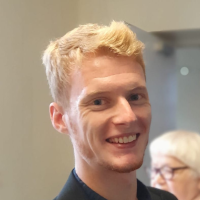
James Openshaw
(University of Warwick)
Remembering objects and imagining the past
10:00-11:30 CET (UTC+01:00), 05 November 2020
Abstract: Taxonomies of memory typically come with ontological baggage. Episodic memory supports the recollection of experienced events, semantic memory of facts, and so on. Where does the recollection of objects fit into this picture? Of course, one can recall an object by episodically recalling event in which it featured, or perhaps by recalling certain facts about it. Are these possibilities exhaustive? Or might there be distinctive kinds of conscious occurrence which put one in a position to have singular thoughts about past objects? In this talk I’ll explore a challenge for the view that recalling an object (in such a way as to support past-tensed singular thought about it) requires episodically recalling an event in which that object featured. I will then consider what an alternative, ‘non-reductive’ view of object memory might look like.
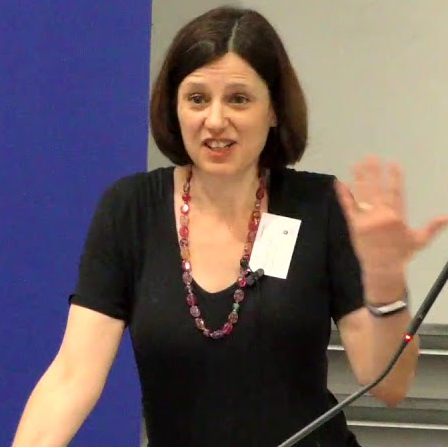
Marya Schechtman
(University of Illinois)
We'll always have Paris: Memory, affect, and personal identity
16:15-17:45 CET (UTC+01:00), 12 November 2020
Abstract: This paper explores an idea, commonly expressed in everyday life, that memories are “treasures” to be stored away and enjoyed later, cherished possessions, which are “ours forever”. The central task is to understand better what it is that people have in mind when they talk about memories in this way. What kinds of memories are they talking about? Why are they so cherished? I suggest that the relevant memories (1) are of events or life periods that we imbue with significance (2) are likely to involve and evoke powerful affect, and (3) that the value associated with these treasured memories is closely connected to the complicated role they can play in regulating mood and emotion. I argue also that the way in which they influence affect generates an experience of both diachronic continuity and discontinuity and hence of ourselves as continuing, multifaceted beings. Understanding how this is so helps to illuminate the often-suggested connection between memory and personal identity.

Christoph Hoerl
(University of Warwick)
Perspective-taking in time
14:00-15:30 CET (UTC+01:00), 13 November 2020
(Talk also part of the FOR 2812 seminar. See here for Zoom coordinates.)
Abstract: Episodic memory can be thought of as involving a form of temporal perspective-taking. The remember imaginatively occupies a point in time in the past. This is also sometimes referred to as mental time travel. I will offer some reflections on what this human ability to engage in temporal perspective-taking consists in, including how it differs from spatial perspective-taking and how it might be related to counterfactual reasoning abilities.
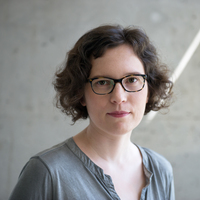
Anja Berninger
(Universität Stuttgart)
Collective memory, emotions and commitments
10:00-11:30 CET (UTC+01:00), 19 November 2020
Abstract: It is a relatively common claim both in history and cultural studies that not only individuals, but also large groups of people such as religious communities or whole nations have some form of memory. Thus, for example, it is suggested that Germans remember the fall of the Berlin Wall, Americans remember the Vietnam war etc. These (and similar) cases are frequently discussed under the heading “collective memory”. From a philosophical perspective, two questions come up with respect to this phenomenon: Is it really memory that we are talking about here? And, if yes, what sort of memory is it? In response to these questions, I suggest that we should interpret most of these cases as involving semantic memory. Yet, as I will highlight in the first section of my talk, not just any form of collective semantic memory would count as collective memory in the historian’s sense of the term. I suggest that two further ingredients need to be integrated to characterize the form of memory we are after: First of all, I will suggest that this type of memory has an emotional component. Secondly, I will argue that there is a specific commitment structure associated with the type of memory in question. I use the rest of the presentation to spell out both aspects in more detail.
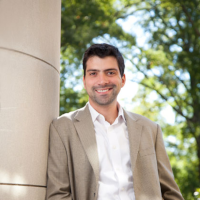
Felipe De Brigard
(Duke University)
Times imagined and remembered
16:15-17:45 CET (UTC+01:00), 26 November 2020
Abstract: Recent evidence suggests that episodic memory, episodic counterfactual and episodic future thinking share common cognitive and neural mechanisms. Some researchers interpret these findings as supporting the more general claim that these three kinds of mental simulation recruit common neural structures because they share an adaptive purpose, namely to enable simulating possible events in order to hedge future uncertainty. But how exactly do these simulations help us at a later time? One possibility, inspired by the work of D.H. Ingvar, is that these kinds of mental simulations serve their future-oriented role only if one is able to properly recall them when the right time comes. These “memories for the future”, as Ingvar called them, have just recently become the object of experimental investigation. In this talk, I seek to contribute to this nascent literature by discussing how we encode and retrieve temporal information from episodic simulations.

Marta Caravà
(Università di Bologna)
Untangling forgetting: An enactive proposal
10:00-11:30 CET (UTC+01:00), 03 December 2020
Abstract: Remembering and forgetting are the two poles of human memory. Consequently, any approach to memory should be able to explain both. Can an enactive approach to memory processes do so? In the talk, I will outline a possible way to give a positive answer to this question. In line with some current enactive approaches to memory, I will suggest that forgetting –similarly to remembering– might be underpinned by an embodied and active process. Within this process, some simulation and re-enactment paths would acquire more relevance than others. This acquired relevance would make the activation of other paths of recall less likely, thus preventing the memory system from engaging in some past-oriented episodic simulations. These changes in the likelihood of activation of some paths of recall –the forgotten ones– can be explained in an enactive fashion by studying both “internal” and “external” re-enactment and simulation paths. With regard to the latter, I will propose to investigate forgetting by considering the engagement and affective relation of an embodied agent with her field of affordances. I will suggest that, in particular in the case of emotion-laden memories, the agent’s decoupling from some affordances of the environment might contribute to the process of forgetting, in that it would constrain the agent’s opportunities for situated past-oriented episodic simulations.

Nikola Andonovski
(Johns Hopkins University)
Memory as triage: Facing up to the hard question of memory
16:15-17:45 CET (UTC+01:00), 10 December 2020
Abstract: The Hard Question of memory is the following: how are memory representations stored and organized so as to be made available for retrieval in the appropriate circumstances and format? In this essay, I argue that philosophical theories of memory should engage with the Hard Question directly and seriously. I propose that declarative memory is a faculty performing a kind of cognitive triage: management of information for a variety of uses under significant computational constraints. In such triage, memory representations are preferentially selected and stabilized, but also systematically modified and integrated into generalized, model-like representational structures. The account, I argue, points to a new kind of preservationist theory, on which the preservation of information in memory goes hand-in-hand with the maintenance of its relevance.
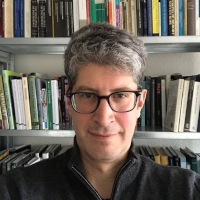
Fabrice Teroni
(Université de Genève)
Emotions and memory
10:00-11:30 CET (UTC+01:00), 17 December 2020
Abstract: Pre-theoretically, it seems obvious that there are deep and multifarious relations between memory and emotions. On the one hand, a large chunk of our affective lives concerns the good and bad events that happened to us and that we preserve in memory. This is one amongst the many ways in which memory is relevant to the nature and causation of emotions. What does recent research teach us about these relations? In the first part of my talk, I shall consider three issues pertaining to these relations. a) Are there types of emotions that are exclusively related to memory? This issue concerns the individuation of emotion types. b) Do emotions in general have privileged links with types of memory (e.g., perceptual memory)? This is a question about the format of representation in emotion. c) Do emotional evaluations have privileged links with memory? This issue concerns the way in which the evaluative aspect of the emotions is realized in the subject’s psychology. On the other hand, which events we happen to preserve in memory very much depends on how we affectively reacted to them when they took place. Emotions are relevant to the nature and causation of memory in this and many other ways. The second part of my talk surveys four issues regarding these relations. a) Is there a relation between the formation of memories and emotions? This is the issue of selectivity, which concerns the role of emotions at the time of encoding. b) Is there a relation between the capacity to access a memory and emotions? This question targets the role of emotions at the time of remembering and relates to the phenomenon of “mood congruence”. c) Is there a type of memory content that is distinctively related to the emotions? This is the issue of affective memories and their nature. d) Is the attitude of remembering (as opposed to what one remembers) emotional in nature?

Jordi Fernández
(University of Adelaide)
Memory and imagination are different propositional attitudes
10:00-11:30 CET (UTC+01:00), 14 January 2021
Abstract: In this talk, I will argue for the view that episodic memory and sensory imagination are different types of propositional attitudes. First, I consider two plausible views about the content and attitude involved in remembering episodically. On one of those views, episodic remembering consists in taking a certain state of affairs that one perceived to be in the past. On the other view, remembering consists in taking a perception of that state of affairs to have caused the experience that one is currently having. Next, I offer a proposal about the content and attitude involved in imagining sensorily. Essentially, the proposal is that, when one imagines a state of affairs in virtue of having some mental image, one takes it to be possible that one could perceive that state of affairs, and that if one perceived it, one would have an experience which is phenomenologically similar to having the mental image that one is currently having. Finally, I highlight the differences which, on either of the two views about memory, separate memory from imagination, and conclude that memory and imagination are distinct propositional attitudes.

Markus Werning and Kristina Liefke
(Ruhr-Universität Bochum and Goethe-Universität Frankfurt am Main/Ruhr-Universität Bochum)
Remembering dreams: The problem of reference in memories of non-veridical experiences
16:15-17:45 CET (UTC+01:00), 21 January 2021
Abstract: Episodic memories are widely assumed to be factive: Saying that somebody remembers something presupposes that the ascribed mnemonic content is true and the descriptions used to express it have existing referents. In this respect the verb "remember" aligns with ordinary uses of perceptual verbs such as "see" and "hear"". The Causal Theory of Memory (Martin & Deutscher, 1966, Bernecker 2010) promises to explain the factivity of memory in two steps: (i) In the original perception a causal chain results in a categorial representation of the perceived object. (ii) The so obtained reference relation is passed on from the perception to the remembering event by a memory trace, which extends the causal link and transmits categorial representational content. Theories that deny the necessity of a content-preserving memory trace, such as Simulationism (Michaelian 2016) and Trace-Minimalism (Werning, 2020), prima facie, fare worse in explaining the reference relations of memories. However, this assessment changes when one also considers memories of non-veridical experiences such as dreams. Here causal links to their (counterfactual) intentional objects are typically not available. Still anaphoric reference relations between memory and dream content seem to hold. Even correctness conditions apply. It is possible to misremember what you have dreamt. In line with Blumberg (2018), we develop a parasitic account of the reference relations of mnemonic contents: Memories are referentially fully dependent on the original experiences, be they veridical or not. To establish this view, one only needs to single out the experience in question by an appropriate causal link to the remembering event. A transmission of categorial representational content is not necessary. The resulting view is in accordance with Trace-Minimalism.

Sven Bernecker
(Universität zu Köln)
The moral excusability of forgetting
10:00-11:30 CET (UTC+01:00), 28 January 2021
Abstract: Does moral ignorance due to forgetting exculpate wrongdoing? Could an agent be blamelessly ignorant of, say, the fact that one ought to be tolerant of differences; or would such an ignorance always imply a lack of good will? I argue that the debate about the exculpation of forgetting-based moral ignorance suffers from two defects. First, the debate does not first consider the rules for which morally relevant memory behaviors we ought to perform and avoid. Second, the debate lacks a proper understanding of the processes by which people forget the difference between right and wrong. When we examine the processes by which people remember or forget the correct moral theory or acquire a twisted one, we see that excuses are not binary but gradable: they can be weaker or stronger, mitigating blame to greater or lesser extent (Sliwa 2020). This paper argues that moral ignorance (due to forgetting) may well excuse but not exculpate -- it may lessen the blameworthiness of a forgetting-involving wronging but not so much as to warrant forgiveness.

Carlos Montemayor
(San Francisco State University)
Transactional collective memory
16:15-17:45 CET (UTC+01:00), 04 February 2021
Abstract: In previous work, I argued that the distinction between access and phenomenal consciousness plays a normative role in memory. Memories that are episodically recalled in order to act, decide, and plan are not necessarily phenomenally conscious, and they play a truth-conducive or epistemic role. By contrast, memories that have a rich phenomenal profile on the basis of their experienced vividness and salient value in our personal narrative play a moral and aesthetic role. These two roles are not incompatible and interact in various ways, although they are dissociable. In this talk, I explore this distinction in the counterintuitive context of collective memory. I shall argue that this normative difference is more general than its psychological association with consciousness—it is a feature that depends on meaning-making memories versus mere memory reports. The contribution of this approach is that while the phenomenology of memory is subjectively crucial for the saliency of memories, it is insufficient to explain the general distinction between meaningfully narrative and merely episodic memories. More precisely, while phenomenology provides familiarity with our past, the difference between meaning-making and episodic memories is more general than the familiarity provided by phenomenology, and it requires an independent account. Topics in historiography and legal evidence are explored to assess various options, showing the advantages of a unified transactional approach to individual and collective memories.
Second semester
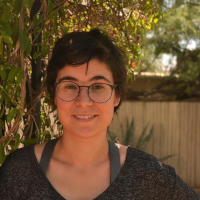
Sara Aronowitz
(University of Arizona)
Two challenges from semanticization
16:15-17:45 CEST (UTC+02:00), 13 April 2021
Abstract: Many philosophers have assumed that semantic and epistemic memory can successfully be studied separately. In this talk, I raise two challenges to this idea, both drawing on the phenomenon of semanticization: a process by which episodic content drifts towards or shifts into semantic content, usually over repeated exposure. The first challenge suggests that episodic memory does not have a special type of content that can be conceptualized in isolation from semantic content. The second challenge suggests that the process and function of episodic memory should be understood as part of a joint, declarative memory system.

André Sant'Anna
(Washington University in St. Louis)
Fluency as the basis of autonoetic consciousness
16:15-17:45 CEST (UTC+02:00), 20 April 2021
Abstract: One central idea in recent memory research is that episodic memory is characterized by autonoetic consciousness, or the capacity we have to become aware of ourselves in subjective time. In this talk, I argue that autonoetic consciousness is the result of a metacognitive attribution made on the basis of fluency. In particular, I rely on recent work on the influence of fluency on judgments to argue that we learn to experience fluency in remembering as meaning "self" and "time" when we begin to engage in reminiscing narratives in social contexts.
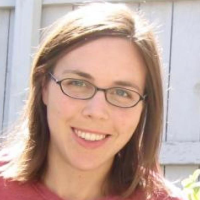
Lisa Libby
(Ohio State University)
Seeing meaning: How perspective shapes the function of imagery
14:00-15:30 CEST (UTC+02:00), 07 May 2021
Abstract: Visual images are a ubiquitous tool for representing and communicating information. This is true looking at the world around us – e.g., advertisements, news, and social media. It is also true when looking at the world within: Mental imagery is a frequent, and functional, feature of human cognition. Imagery necessarily has a perspective, and when it comes to actions and events, they can be visually depicted either from the actor’s first-person perspective or observer’s third-person perspective. This talk will review a program of research exploring the social-cognitive function of visual perspective in event imagery. This work supports a novel model of imagery perspective’s function by identifying a critical mechanism by which perspective operates: by shaping cognitive processing style. First-person imagery supports a processing style in which people’s understanding of events emerge from particular sensations and low-level associations that the concrete features of the pictured event evoke. Third-person imagery supports a processing style in which people’s understanding of events follows from a coherent integration of the pictured event with other high-level relevant knowledge according to the logic that governs an abstract belief system. These effects of imagery on cognitive processing style hold, regardless of whether imagery is internally generated or externally presented, and whether imagery depicts one’s own or others’ actions. This talk will review evidence supporting this model of imagery perspective’s cognitive function and demonstrating implications for judgment, emotion, and behavior. These findings distinguish the visual dimension of perspective from other dimensions on which perspective may vary and suggest connections with other theories concerning the self, memory, and event representation, as well as implications for phenomena including behavioral change, emotional coping, decision-making, and self-insight.

Istvan Aranyosi
(Bilkent University)
Memory, causality, and quantum entanglement
16:15-17:45 CEST (UTC+02:00), 11 May 2021
Abstract: One of the ways out of the deeply puzzling quantum entanglement phenomena (non-locality, EPR paradox, violation of Bell’s Inequalities) that has been gaining traction and sympathy recently is the introduction of retrocausality, that is, causation from current observations to past events. There are several advantages of this approach, but its implications for other domains are still being explored. In this paper I analyze its implications for the metaphysics of memory. This makes sense, as token episodes of episodic remembering are, as I will argue, analogous to observation in science. I will compare orthodox, causal theories of remembering and more recent acausal or postcausal ones, such as constructivism and direct realism, in terms of what the retrocausality based reinterpretation of entanglement will imply about their plausibility.
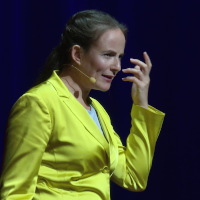
Melanie Rosen
(Trent University)
Our forgotten dream lives: a case for scepticism about oniric consciousness?
16:15-17:45 CEST (UTC+02:00), 25 May 2021
Abstract: When we wake up, do we remember conscious experiences that occurred during sleep? It’s hard to deny that some form of conscious dreaming occurs. Beyond this quite general claim, however, there is much disagreement about the nature of this experience: whether dreams are hallucinatory, imaginations or some other mental state. Whatever the phenomenology, dreams, it is said, are conscious experiences. After waking, we sometimes remember and report our dreams, to varying degrees of accuracy. Memory of such experiences, however, is very poor. Awakening subjects during rapid eye movement (REM) sleep suggest that dreams occur in nearly every REM session, and some non-REM sessions too. However, we rarely report more than one dream, if any, upon waking normally in the morning. This suggests that a large majority of dreams – nearly all – are forgotten. Here an alternative interpretation considered: rather than having a diverse conscious mental life that occurs during sleep, most “dreams” are not in fact conscious. Not only do we have poor recollection of dreams upon waking, in-dream memory is also severely lacking, both of recent dream events and our waking lives. If memory is part of what makes an experience conscious and dream memory is sufficiently diminished, such mental states might not pass a threshold for consciousness. Under different theories of consciousness, dream mental events might not make it to the ‘global workspace’ or alternatively, lack requisite higher-order thoughts or access. This leaves open the possibility that, when a subject is woken up during REM sleep, they become retroactively conscious of these unconscious mental states, consistent with Dennett’s cassette theory of dreaming. According to this view, most dream reports would be, in some sense, of false memories. Here the plausibility of such an interpretation is reviewed.

Santiago Arango-Muñoz
(Universidad de Antioquia)
Intentional mind-wandering and autobiographical memory
16:15-17:45 CEST (UTC+02:00), 08 June 2021
Abstract: Mind-wandering seems to be paradigmatically unintentional. However, experimental findings have yielded the paradoxical result that mind-wandering can also be intentional. In this talk, I first present the paradox of intentional mind-wandering and then explain intentional mind-wandering as the intentional omission to control one’s own thoughts. Finally, I'll try to illustrate this by presenting some cases of autobiographical memory.
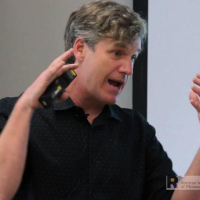
Carl Craver
(Washington University in St. Louis)
Moral judgment in amnesia
16:15-17:45 CEST (UTC+02:00), 22 June 2021
Abstract: I will discuss parts of two chapters of my forthcoming book with Shayna Rosenbaum, tentatively titled Living Without Memory. Episodic memory is memory for past personal experiences accompanied by awareness that the rememberer previously experienced that event. Philosophers and psychologists alike have argued that episodic memory is distinctively human (Tulving 1983; Suddendorf and Corballis 2007) and that it might well play a key role in the capacity for moral agency, judgment, and reflection (Darwin 1871; Casebeer and Churchland 2003; Thagard 2007; Gerrans and Kennett 2010; 2016.) In this talk, I focus specifically on the capacity for moral judgment and various sub-capacities that might plausibly be thought to both require episodic memory and contribute to that overarching moral evaluative capacity: specifically, knowledge of other minds (Wimmer and Perner 1983), the experience and anticipation of regret (Hoerl and McCormack 2016), and the valanced evaluation of actions and of persons. In each case, the performance of individuals with amnesia foil philosophical intuitions. To compare moral judgment in individuals with amnesia to that in control populations, I consider two sets of moral vignettes, including Greene’s moral judgement battery, and argue that the performance of individuals with amnesia on this battery casts serious doubt on Green’s favored explanation for his results, namely, his hypothesis that imagined personal proximity shunts moral judgement toward deontologically-driven decisions. Overall, these results cast doubt on philosophical and scientific intuitions about the moral lives of individuals with amnesia and prompt us to seek a different and more perspicuous articulation of how episodic amnesia impacts their lives as persons. Sketching such an alternative will occupy the last section of my talk.

Changsheng Lai
(Shanghai Jiao Tong University)
The threshold problem for memory
16:15-17:45 CEST (UTC+02:00), 06 July 2021
Abstract: For one’s remembering a fact p, one’s present representation of p is expected to have a proper informational connection with her previous p-related representations. Sven Bernecker calls this the authenticity condition of memory, to wit, a memory content must be sufficiently similar to (if not type-identical with) the relevant past content. This naturally gives rise to a problem: how similar is ‘sufficiently similar’? Where does the threshold lie between remembering and lack thereof (in terms of authenticity)? I would like to call this the ‘threshold problem for memory’ by drawing a parallel with the heatedly-discussed ‘threshold problem for knowledge’, which asks where the threshold lies between knowing and lack thereof (in terms of fallibility). This paper will illustrate that similar difficulties in solving the threshold problem for knowledge would also be encountered in solving the threshold problem for memory. For example, how to find a threshold that is non-arbitrary, appropriate, and informative enough? Besides, memory’s threshold problem is particularly intractable. That is because, first, the most worked out solution to this problem to date that hinges on Bernecker’s entailment thesis (2010; 2017), as I will demonstrate, is both too demanding and too lenient. Second, whereas the threshold problem for knowledge concerns how to eliminate epistemic luck, the threshold problem for memory concerns how to eliminate mnemic luck, which is a much more underexplored and complicated concept.

Daniel D. Hutto
(University of Wollongong)
Remembering without a trace? One step beyond trace minimalism
10:00-11:30 CEST (UTC+02:00), 20 July 2021
Abstract: It can be compelling to think that remembering depends on – and is only possible due to – the existence of memory traces of some kind. This paper provides analyses that encourage us to look beyond memory traces in our attempts to understand episodic remembering. The main action unfolds as follows. Section one provides a review of memory traces and the explanatory work they were introduced to perform. This helps us to get a fix on their minimal defining characteristics. This section articulates what is at the core of contemporary attempts to provide workable theories of memory traces and highlights a crippling problem that all such theories face in light of their commitment to representationalism. Section two focuses on an inventive attempt to avoid that crippling problem in the shape of Werning’s (2020) minimal notion of a memory trace – a notion that does not presuppose the existence of any preserved representational content. Section three poses a dilemma for Trace Minimalism. In the final analysis, it is argued in section four that whichever path one chooses, there are compelling reasons to go one step beyond Trace Minimalism and to abandon all hope of concocting a naturalistically respectable and explanatorily robust notion of a memory trace.